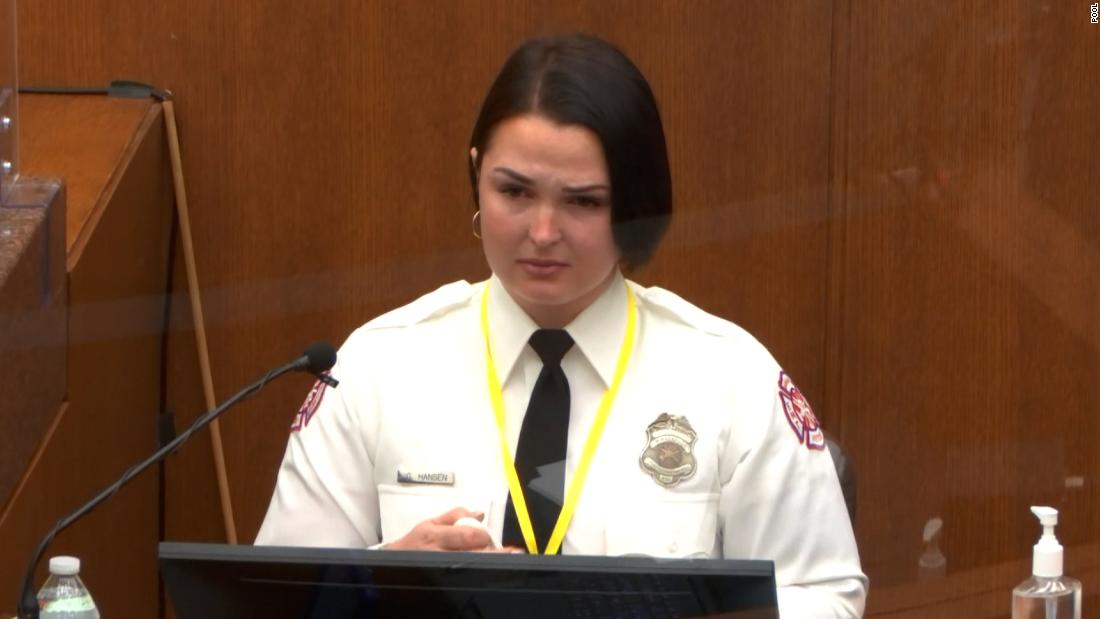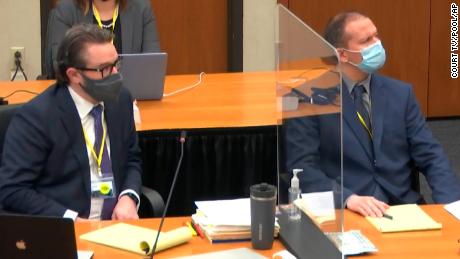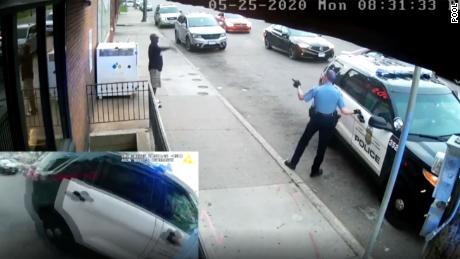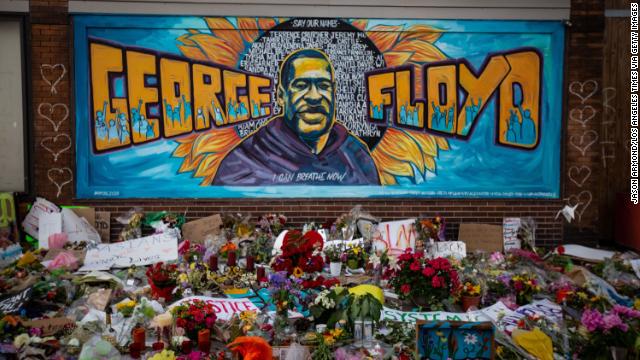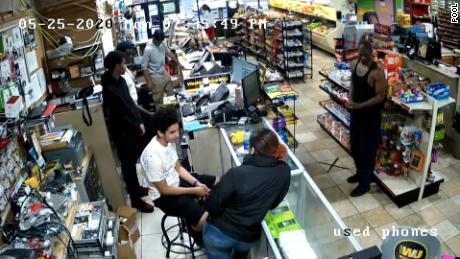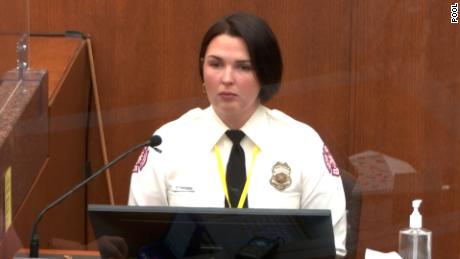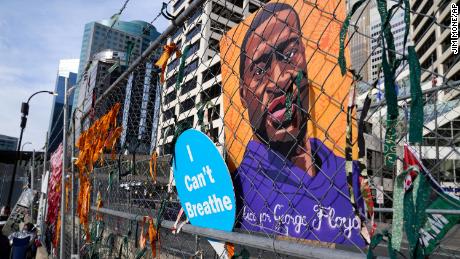Store cashier who suspected George Floyd of using fake $20 bill says he feels guilty
“That’s one person’s opinion,” Chauvin responded as he got into his squad car. “We had to control this guy because he’s a sizable guy. It looks like he’s probably on something.”
The short clip from Chauvin’s own body camera, played in his criminal trial Wednesday, represents the first time the public has heard the ex-officer’s perspective in the nearly 10 months since Floyd died under his knee, launching a worldwide protest movement.
Charles McMillian, the 61-year-old witness, testified that he watched Floyd’s arrest and death and afterward had a short conversation with Chauvin as police left the scene. “What I watched was wrong,” he told the court.
The video left McMillian crying and heaving on the witness stand.
“I feel helpless,” he said. “I don’t have a mama either. I understand him.”
Chauvin, 45, has pleaded not guilty to charges of second-degree murder, third-degree murder and second-degree manslaughter. His trial comes 10 months after Floyd’s death sparked a societal reckoning with American anti-Black racism and aggressive policing.
Witnesses express survivor’s guilt
A number of witnesses have expressed survivor’s guilt about what they did and didn’t do leading up to Floyd’s death. An employee at the Minneapolis corner store who suspected Floyd gave him a counterfeit $20 bill last May testified in court Wednesday that he felt “disbelief and guilt” knowing that their interaction led to Floyd’s death under Chauvin’s knee.
“If I would have just not taken the bill, this could have been avoided,” Christopher Martin, a 19-year-old cashier at Cup Foods, testified in court Wednesday. He stopped working there soon after because he said he didn’t feel safe.
“You can believe your eyes that it’s a homicide,” prosecuting attorney Jerry Blackwell said Monday. “You can believe your eyes.”
Store clerk says Floyd used fake $20 bill
Martin, the cashier, testified that Floyd responded slowly and appeared to be high when he came into the store on May 25, 2020. Surveillance video played in court shows Floyd fiddling with items in his pockets and casually interacting with other customers and employees.
Floyd then bought a pack of cigarettes with a $20 bill that Martin believed to be fake because of its blue color and texture. After examining the bill closely, Martin told his manager, who twice told Martin and other employees to go out to Floyd’s vehicle and bring him back into the store to resolve the issue.
When Floyd did not do so, the manager told an employee to call police — a fateful call that ultimately ended with Chauvin kneeling on Floyd’s neck.
Martin filmed Floyd under Chauvin’s knee but deleted the video from his phone that night.
“I just didn’t want to have to show it to anyone or be questioned about it,” he said.
Christopher Belfrey, who came to Cup Foods to pick up food, testified that he saw officers walk up to Floyd’s vehicle and point a gun into the window. From inside his car, he filmed police handcuffing Floyd and later bringing him to a sidewalk.
“I didn’t know exactly what was going on. I didn’t want to be in the middle of so much commotion,” Belfrey testified. He said for that reason moved his vehicle.
Off-duty firefighter said police blocked her from helping Floyd
She tried to help Floyd and repeatedly asked police to check for a pulse, but they refused, leaving her feeling desperate and helpless.
“I tried calm reasoning, I tried to be assertive, I pled and was desperate,” she testified. “I was desperate to give help.”
Hansen became combative with Nelson, the defense attorney, during Tuesday’s cross-examination, repeatedly taking issue with his questioning and responding with snark. “I don’t know if you’ve ever seen someone die in front of you, but it’s very upsetting,” she said at one point.
After dismissing the jury for the day, Judge Peter Cahill admonished Hansen, telling her to answer questions and stop arguing. Upon her return to the stand on Wednesday morning, Nelson asked just one question to confirm she did not show the officers on the scene her ID.
“I grew professional. I stayed in my body,” Williams said. “You can’t paint me out to be angry.”
![]()


